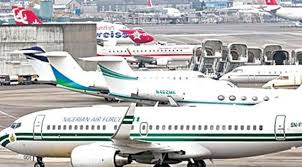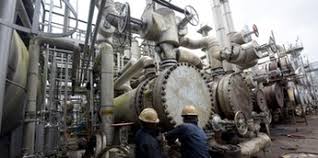The top labor unions in Nigeria went on strike on Monday, demanding a pay hike amid the greatest cost of living crisis in decades. Major airports were closed, and the nation that is home to the majority of Africa’s population came to a complete standstill.
The economic changes implemented by President Bola Tinubu, such as the removal of fuel subsidies, have caused inflation to soar to a record high of 28 years.
According to the Transmission Company of Nigeria, workers in this most recent strike forced operators at a crucial transmission station to leave and shut down the country’s energy grid. They also stopped other workers who were ordered to restore power.
In other places, such as airports in Lagos, the country’s economic centre, and Abuja, the capital, government employees either did not show up for work or closed the doors to their offices.
According to their group, all aircraft workers should avoid the area “until further notice.”
The Nigerian Labor Congress stated on X that they “demand a living wage,” calling their current pay a “starvation wage.” It represents hundreds of thousands of government employees in important sectors with the Trade Union Congress.
Laptops 1000The unions are calling for an increase in the current minimum wage from 30,000 naira ($20) to about 500,000 naira ($336) per month. The government makes a $40 offer, worth 60,000 naira.
According to Information Minister Mohammed Idris, the unions’ demands would result in a 9.5 trillion ($6.3 billion) rise in government salary costs, which has the potential to “destabilize the economy.”
One of Africa’s largest oil producers saw a more than twofold increase in gas prices after the president of Nigeria terminated the expensive and lengthy fuel subsidies on his first day of office in May of last year. Commodity and public transportation costs skyrocketed.
To attract foreign investment, Tinubu’s administration also depreciated the naira, which raised the cost of essential goods in the more than 210 million-person import-dependent nation.




















